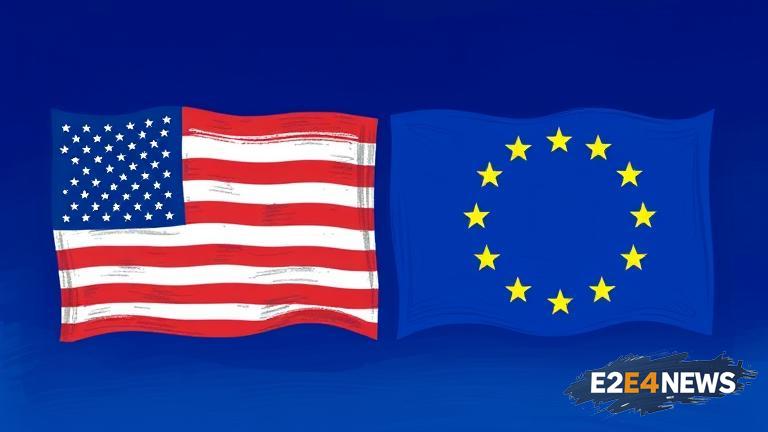The European Union’s economy has been facing numerous challenges in recent years, and the latest trade deal with the United States has raised concerns about its ability to withstand the storm. The deal, which aims to reduce tariffs and increase trade between the two blocs, has been hailed as a major breakthrough by some, but others have expressed skepticism about its potential impact on the EU’s economy. One of the main concerns is that the deal could lead to a surge in US imports, potentially displacing European products and threatening the livelihoods of EU workers. Additionally, the deal’s emphasis on reducing regulatory barriers could lead to a race to the bottom, with EU standards being watered down to accommodate US interests. The EU’s agricultural sector is particularly vulnerable, with many farmers expressing concerns about the potential impact of cheaper US imports on their livelihoods. Furthermore, the deal’s provisions on intellectual property and digital trade could have significant implications for the EU’s tech industry, potentially undermining its ability to compete with US giants. Despite these concerns, some EU leaders have argued that the deal is necessary to boost economic growth and create jobs. They point to the potential benefits of increased trade, including lower prices for consumers and increased investment in key sectors such as renewable energy and technology. However, others have argued that the deal is a betrayal of EU values, particularly with regards to environmental and social protections. The deal’s impact on the EU’s climate goals is also a major concern, with some arguing that it could undermine the bloc’s ability to meet its Paris Agreement commitments. As the EU navigates the complexities of the trade deal, it must also contend with the challenges posed by the ongoing COVID-19 pandemic and the rise of protectionism around the world. The EU’s economy is highly integrated with the global economy, and any disruption to trade flows could have significant implications for its growth and stability. In recent years, the EU has faced numerous challenges, including the Brexit saga, the migration crisis, and the ongoing pandemic. Despite these challenges, the EU has remained a major economic powerhouse, with a highly developed single market and a strong commitment to social and environmental protections. However, the trade deal with the US has raised questions about the EU’s ability to maintain its economic sovereignty in the face of growing global competition. The deal’s provisions on dispute settlement and regulatory cooperation could potentially undermine the EU’s ability to set its own rules and standards, potentially threatening its economic independence. As the EU looks to the future, it must balance its desire for increased trade and economic growth with its need to protect its values and interests. This will require careful negotiation and diplomacy, particularly with regards to the US, which has a reputation for being a tough and demanding trade partner. The EU must also contend with the rise of other major economic powers, including China and India, which are increasingly seeking to challenge US dominance of the global economy. In conclusion, the EU-US trade deal has significant implications for the EU’s economy, and its ability to withstand the challenges ahead will depend on its ability to navigate the complexities of the deal and protect its values and interests. The EU must remain vigilant and ensure that the deal is implemented in a way that benefits all member states and promotes sustainable and inclusive economic growth. The EU’s economy is at a crossroads, and the choices it makes now will have significant implications for its future prosperity and stability. The trade deal with the US is just one of many challenges that the EU faces, and it must be addressed in the context of the broader global economic landscape. The EU’s commitment to social and environmental protections must be maintained, even as it seeks to increase trade and economic growth. The EU’s economic sovereignty is at stake, and it must be protected at all costs. The EU-US trade deal is a major test of the EU’s ability to navigate the complexities of the global economy, and its success or failure will have significant implications for the future of the bloc.
